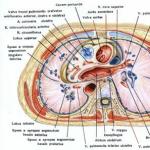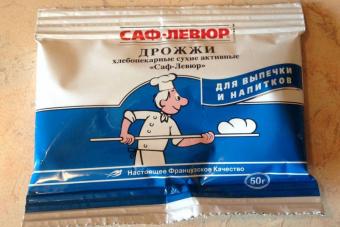Pentathlon modern, complex sports competitions, include horse riding with overcoming obstacles - show jumping, epee fencing (fights until the first injection with each participant in the competition), high-speed shooting from a small-caliber pistol (20 shots in 4 series), swimming (freestyle, distance 300 m),
cross (cross-country running over a distance of 4000 m for adults, 3000 m for juniors). Competitions are held over 5 days - one sport per day. Common places Competition participants are determined by the amount of points received in each type of program. Complex competitions in sports and applied skills necessary for a warrior have been known since ancient times (for example, the pentathlon in the program of the ancient Greek Olympic Games). In the 2nd half of the 19th century. In Sweden and then in other countries, competitions began to be held in officer training, a sports complex that reflected the essence of the combat training of an officer at that time (horse riding, fencing, shooting, swimming, running). Since 1912, on the initiative of P. de Coubertin, the officer training complex he developed was included in the program of the Olympic Games (See Olympic Games). Until 1948, only officer athletes were allowed to compete. Modern name the complex received in 1948, when the International Union of Modern Biathlon and Biathlon was founded in London
(UIPMB); in 1974 it united 44 national federations. Since 1949, world championships have been organized annually (except for years when the Olympic Games are held), and since 1965 - for juniors. In the USSR, the first competitions in P. took place in 1947; Since 1953, national championships have been held annually. In 1952 P. was included in the Unified All-Union Sports Classification. In 1952, the federation of modern P. USSR was created, which in the same year became a member of the UIPMB. In 1974, about 5 thousand athletes were engaged in gymnastics in the USSR, including about 250 masters of sports, 38 honored masters of sports and honored coaches. P. was most developed in Hungary, the USSR, Sweden, the USA, Finland, France, Italy, Germany, Poland, Czechoslovakia, Romania, Bulgaria, etc. Olympic Games The individual championship was won 9 times by Swedish pentathletes, three times by Hungary, and the team championship (played since 1952) - 3 times each by athletes from Hungary and the USSR. At the world championships, pentathletes of the USSR won 9 times in individual and 9 times in team competitions, respectively, Hungary - 7 and 7, Sweden - 4 and 4. Among the world champions were Soviet athletes I. A. Novikov, K. P. Salnikov, E. S. Sdobnikov, B. G. Onishchenko, P. S. Lednev. Repeated champions World and Olympic Games were L. Hall (Sweden) and A. Balzo (Hungary). Since the 70s In the USSR, France, Australia, Great Britain and other countries, training sections for women are organized. O. I. Chuvilin.
Great Soviet Encyclopedia. - M.: Soviet Encyclopedia. 1969-1978 .
Synonyms:See what “Pentathlon” is in other dictionaries:
Modern encyclopedia
Pentathlon- athletics: running, jumping, throwing (the most common women's pentathlon: 100 m hurdles, shot put, high jump, long jump, 800 m run). The places of the competition participants are determined by the amount of points awarded according to... ... Illustrated Encyclopedic Dictionary
Athletics: running, jumping and throwing (women's pentathlon is the most common). The places of the competition participants are determined by the amount of points awarded according to special tables. See also Modern Pentathlon... Big Encyclopedic Dictionary
PENTATHLON, I, Wed. A sports competition in five sports or five types of exercises in one sport. Military applied p. Athletics p. Modern pentathlon (a sport that includes show jumping, epee fencing, shooting... ... Dictionary Ozhegova
This is a Modern pentathlon sport from the class of all-around sports Pentathlon sports, including competitions in 5 types of athletics, Heptathlon ... Wikipedia
Pentathlon Dictionary of Russian synonyms. pentathlon noun, number of synonyms: 3 pentathlon (2) ... Dictionary of synonyms
PENTATHLON, pentathlon, many. no, cf. (sport.). A type of all-around competition consisting of five specially selected types of competition. Ushakov's explanatory dictionary. D.N. Ushakov. 1935 1940 ... Ushakov's Explanatory Dictionary
- (5 fights) ... Spelling dictionary-reference book
pentathlon- I, only units, p. Sports competitions in five sports. Do pentathlon. National Pentathlon Championships. Women's pentathlon. Men's pentathlon. Related words: pyatibo/rets, pyatibo/rka Etymology… Popular dictionary of the Russian language
I; Wed Complex physical exercise in five sports; sports competition at this complex. Military applied item. Athletics item. Modern item. Compete in pentathlon. Win gold medal in the pentathlon. * * * pentathlon… … Encyclopedic Dictionary
Modern pentathlon is a unique combination of five different sports in a single complex. It brings together competitions that are so different in focus and spirit as: fencing (emotions, endurance, reaction speed), swimming (physical endurance), show jumping (find a common language with an unfamiliar horse), running and shooting (a complex type of program that implies physical endurance, ability control breathing and steadiness of the hand, as well as enviable psychological endurance).
Official competitions are held on the same day.
After preliminary selection, 36 athletes take part in the final competitions.
Modern pentathlon competitions usually take place in the following sequence:
- fencing;
- swimming;
- show jumping;
- combine - running (athletics) plus pistol shooting
and are based on a points system. For each discipline, a certain standard is established, upon fulfillment of which the athlete is awarded 250 (in show jumping - 300) points. If he manages to exceed this standard, the pentathlete receives a certain number of additional points; if the standard is not met, the corresponding points are deducted from the participant. Points scored in various types programs are summarized.
Fencing
Epee fencing often lasts several hours, as it is carried out in a round robin system. Each athlete spends at least 20 fights. Already the first injection (the entire body is the surface of the injection) determines victory or defeat. With mutual thrusts, that is, when both fencers make a thrust at the same time, fencing continues until the next thrust. To prevent the battle from lasting too long, its duration is limited to 1 minute. If during this time a winner is not identified, then both athletes will be considered defeated. At fencing competitions, electro-automatic hit alarms are required. Each participant meets with all participants in a round-robin system, and fights until a successful injection is made. For each shot won, the athlete receives 6 points. 70% of battles won are 250 points.
Swimming
Freestyle swimming at a distance of 200 m. A result of 2:30 minutes for men and women brings the participant 250 credit points. Every 0.3 seconds above (below) this result improves (worsens) its indicator by 1 point. The record for men's pentathletes today is 1:54.25.
Show jumping
Horse riding with overcoming obstacles at a distance of 350-450 m. The height of the obstacles is up to 120 cm, the width is up to 150. Among these obstacles there must be one double and one triple system. A control time is set for completing the route (for example, for a distance of 400 m it is 2:18 minutes). The result of the participants’ performance is determined by subtracting penalty points from the initial 300 points: for overdue time (1 point for every “extra” second) and technical errors. If an athlete exceeds the time limit more than 2 times, he receives 0 points for his performance. According to the rules, the rider’s “acquaintance” with the horse on which he will ride (according to the draw) occurs 20 minutes before going to the start. During the warm-up, the pentathlete can take on “his” horse five trial obstacles.
Combine - running and shooting with a pistol
From 1 January 2009, the 3000 m running and shooting events were combined. Nowadays the use of a laser pistol and electronic targets is allowed in shooting. According to the rules of the competition, you need to run 4 times 800 meters, having 4 firing lines along the distance. The start is made according to the handicap system - points are calculated based on the results of previous events and their difference is converted into seconds. After the start, 20 meters later, the athletes run up to the firing line. Shooting takes place in 4 series, the distance to the targets is 10 m. Each series consists of hitting 5 targets with a diameter of 59.5 mm by any number of attempts in the maximum allotted time of 50 seconds. The fastest-firing pentathletes “cover” five targets in 10-15 seconds. Once the athlete has hit 5 targets or the time limit has expired, he can begin the 800 meter run. The winner is the one who crosses the finish line first. The award ceremony for winners and runners-up takes place on the same day.
Class locations:
|
JUMPING: |
Modern pentathlon- a complex of sports competitions consisting of swimming, show jumping, fencing, running and shooting. This set was determined by the traditions of the Olympic Games in Ancient Greece. Then the program included running, wrestling, long jump, discus and javelin throwing - all these skills were necessary for a Greek warrior. The founder of the modern Olympic movement, Pierre de Coubertin, was guided by the same idea. He took as a basis a cavalryman who had to ride well, wield bladed weapons and firearms, and also overcome obstacles both by swimming and on foot.
This sport was first included in the Olympic program in 1912 under the name “Officer Olympic Pentathlon”. From that moment until 1948, only active officers could take part in the pentathlon. In addition, the competitions themselves took place exclusively within the framework of the Olympics.
In 1948, during the London Olympics, the International Union of Modern Pentathlon was created. It unites all national federations that cultivate this sport. From now on, not only officers, but also everyone is allowed to compete. This was the reason for changing the name.
From the moment the pentathlon was included in the program of the Olympic Games in Stockholm until 1952, the Swedes remained the strongest. And at the next games in 1956 in Melbourne, Soviet athletes won a team victory.
The USSR pentathletes also celebrated their team victory at the 1972 Games in Munich. But in Rome in 1960 and Mexico City in 1968 they were second after the Hungarian team.
In our country, modern pentathlon began to be cultivated in 1947. But this sport received serious development only in 1952. In 1952, the USSR Modern Pentathlon Federation joined the International Union of Modern Pentathlon.
The first Russian master to become a world champion was Muscovite Konstantin Salnikov. This happened in 1955 in Switzerland. Then came the era of Igor Novikov from Yerevan. At the 1957 World Championships, he achieved the coveted golden double, receiving 2 highest awards - for participation in the team and for personal victory. Then he became world champion three more times. In 1958, 1959 and 1961, he was a member of the USSR national team that won the team competition at the 1957-1959, 1961 and 1962 World Championships. and twice at the Olympic Games - in Melbourne and Tokyo.
The most a shining example, the owner of the large number Olympic awards in the history of modern pentathlon were the famous Soviet pentathlete Pavel Lednev, who became the Olympic champion (1972, 1980) in the team event; won silver at the 1968 Olympic Games. in the team competition, as well as in 1976 in the individual competition; Olympic bronze (1968, 1972, 1980) in the individual competition. In addition, he competed at 7 World Championships, where he won 6 gold, 4 silver and 2 bronze medals in individual and team competitions.
At the 1980 Olympic Games in Moscow, 20-year-old athlete Anatoly Starostin won gold in the individual and team championships, as well as silver at the 1992 Olympic Games in Barcelona as part of the CIS. In addition, he won 6 gold medals at the World Championships, of which 2 in the individual competition in 1983, 1986 and 4 in the team competition in 1982, 1983, 1985,1990, as well as 3 silver medals in 1982, 1985, 1990 . and 3 bronze in 1979, 1989. In 1986, Anatoly became the champion in the team championship of the Goodwill Games and in 1990. — in the individual competition. He also won 6 gold medals in the world championships among juniors, of which 2 in the individual competition in 1978, 1981, 4 in the team competition in 1978, 1979, 1980, 1981, as well as 1 silver in 1979 and 1 bronze in the individual competition in 1980
Eduard Zenovka won a bronze medal in the individual competition and a silver medal in the team competition at the 1992 Olympic Games in Barcelona. At the 1996 Olympic Games in Atlanta, he won a silver medal in the individual competition. World, European, USSR and Russian champion in modern pentathlon. Honored Master of Sports of the USSR in modern pentathlon.
Dmitry Svatkovsky achieved his first significant success in 1991, winning the Junior World Championships in Barcelona in the individual and team competitions. On next year The Olympic Games were held in Barcelona, where Svatkovsky, together with Anatoly Starostin and Eduard Zenovka, won team silver. In the 1990s, he won the titles of world champion (1994, 1995), European champion, and was a four-time winner of the World Cup in modern pentathlon. He began preparing for the 2000 Olympics only a few months before it began, but this did not stop him from confidently winning the gold medal in Sydney.
Andrey Moiseev, at the 2004 Olympic Games in Athens won a gold medal in the individual competition, at the 2008 Olympic Games in Beijing, he repeated his success. Previously, only the Swedish athlete L. Hull managed to win gold in two consecutive Olympics. Andrey became the world champion in 2011 in the individual competition, in 2004, 2005, 2008 in the team competition, silver in 2012 and bronze in 2005 in the individual competition.
Alexander Lesun won the World Cup in May 2010. In September, Alexander became 2nd at the World Championships, losing to his team partner Sergei Karyakin. The next season, Lesun stopped one step away from victory several times, and again lost at the World Championships only to the Russian - this time to Andrey Moiseev. In March 2012, Alexander won the World Cup in Brazil, in May he became the world champion, and in June he won the prestigious Kremlin Cup. By the London Olympics, Lesun was leading the UIPM ranking. In 2014, Alexander won the World Championship and European Championship, the Kremlin Cup and the World Cup Final in the individual competition.
Sergey Karyakin – Honored Master of Sports. World Junior Champion in 2008. Silver medalist at the World Relay Championships (2009). At the world championship among boys under 18 years of age, held in Italy, Sergey Karyakin won gold medals in the relay and team competitions, as well as a bronze medalist in the individual competition. In 2010, in Chengdu, China, he became the world champion in the individual competition. European team champion in 2011
Since 1978, women's pentathlon began to develop. Svetlana Yakovleva is an Honored Master of Sports of the USSR in modern pentathlon. Playing for CSKA Moscow, in 1984 she became the first Soviet athlete to win the title of world champion in the individual competition. The first champion of the USSR Armed Forces in modern pentathlon among women (1984). Winner of the First All-Union competition in the USSR in modern pentathlon among women (1984), as well as silver medalist of the 1985 World Championship (Canada, Montreal) (team championship) and silver medalist of the 1986 Goodwill Games (Moscow) in the team event.
Irina Kiseleva is the youngest individual world champion in the history of women's modern pentathlon. She won the gold medal at the 1986 World Championships in Italy at the age of 19 years and 17 days. She is a multiple winner and prize-winner of world championships in individual and team competitions.
Silver medalist of the 1st Goodwill Games (Moscow) in 1986, as well as the USSR champion in the individual championship (1985, 1987) and winner of the 1st USSR Cup in modern pentathlon (1988).
Only 10 years later, in 1997 in Sofia, Elizaveta Suvorova won the gold medal at the World Championships. Elizaveta is an Honored Master of Sports of Russia, multiple world and European champion, two-time World Cup winner (1994, 1996), as well as an 8-time world champion among juniors in individual and team competitions. At the XXVII Olympic Games in Sydney (2000) she took 7th place.
Tatyana Muratova is an Honored Master of Sports of Russia in modern pentathlon. The only Russian representative of modern pentathlon to take part in 3 Olympic Games in a row (2000, 2004, 2008). Tatyana became world champion in 1999 and 2005 in the team competition. In addition, she won five gold medals at the European Championships: 1997 in the relay, 1999 and 2004 in the team, 2005 in the team and relay. In addition to victories on the International Arena, Tatyana holds the record for the number of Russian Championships won in modern pentathlon in the individual competition - 6 times.
Evdokia Grechishnikova is an Honored Master of Sports of Russia in modern pentathlon. She took part in 2 Olympic Games (2008, 2012). Evdokia is a two-time World Champion (in 2005 in the team event and in 2010 in the relay). In 2007, Evdokia won the European Championship in the individual competition, in 2004 - in the team and relay, in 2005 and 2010 - in the team.
Podium of the Olympic Games in modern pentathlon in the individual competition in Moscow, gold - Anatoly Starostin, bronze - Pavel Lednev
World Championship 1983. Gold in the individual and team championships - Anatoly Starostin. Silver in the individual - Hungarian athlete Samboteli, bronze in the individual and gold in the team - Evgeniy Zenkovsky
Alexander Lesun - Olympic champion, multiple world champion, European champion, World Cup winner
I continue to list our various women's teams in unpopular, and for some people who watch sports once every four years, also unknown sports.
Although, no, everyone in our country could see modern pentathlon. In fits and starts. Because even if there is a review of one of the Olympics, it’s usually a cut-and-dry review. Here they ride a horse, here they shoot, there they swim, and now they will run, and then fencing. No, no, no, I didn’t guess the order: fencing, swimming, show jumping (the one on horses), combine - running (athletics) plus pistol shooting. Now it's correct. Decoding.
Fencing sword training often lasts several hours, as it is carried out on a round-robin basis. Each athlete spends at least 20 fights. Already the first injection (the entire body is the surface of the injection) determines victory or defeat. With mutual thrusts, that is, when both fencers make a thrust at the same time, fencing continues until the next thrust. To prevent the battle from lasting too long, its duration is limited to 1 minute. If during this time a winner is not identified, then both athletes will be considered defeated. At fencing competitions, electro-automatic hit alarms are required. Each participant meets with all participants in a round-robin system, and fights until a successful injection is made. For each shot won, the athlete receives 6 points. 70% of battles won are 250 points.
Swimming freestyle at a distance of 200 m. A result of 2:30 minutes for men and women brings the participant 250 credit points. Every 0.3 seconds above (below) this result improves (worsens) its indicator by 1 point. The record for men's pentathletes today is 1:54.25.
Horseback riding over obstacles at a distance of 350-450 m. The height of obstacles is up to 120 cm, the width is up to 150. Among these obstacles there must be one double and one triple system. A control time is set for completing the route (for example, for a distance of 400 m it is 2:18 minutes). The result of the participants’ performance is determined by subtracting penalty points from the initial 300 points: for overdue time (1 point for every “extra” second) and technical errors. If an athlete exceeds the time limit more than 2 times, he receives 0 points for his performance. According to the rules, the rider’s “acquaintance” with the horse on which he will ride (according to the draw) occurs 20 minutes before going to the start. During the warm-up, the pentathlete can take on “his” horse five trial obstacles.
From January 1, 2009 running at 3000 m and shooting were merged. Nowadays the use of a laser pistol and electronic targets is allowed in shooting. According to the rules of the competition, you need to run 4 times 800 meters, having 4 firing lines along the distance. The start is made according to the handicap system - points are calculated based on the results of previous events and their difference is converted into seconds. After the start, 20 meters later, the athletes run up to the firing line. Shooting takes place in 4 series, the distance to the targets is 10 m. Each series consists of hitting 5 targets with a diameter of 59.5 mm by any number of attempts in the maximum allotted time of 50 seconds. The fastest-firing pentathletes “cover” five targets in 10-15 seconds. Once the athlete has hit 5 targets or the time limit has expired, he can begin the 800 meter run. Previously, only a single-shot gas (CO2) or pneumatic pistol of 4.5 mm caliber was used, the athlete had to reload the weapon before each shot and after hitting five targets he ran on (the rate of fire record is 7.22 seconds. The world record for the time spent hitting 15 targets is 28 .7 sec.).
In our world, thanks to the development of the television industry and other mass entertainment shows, it is generally accepted that if a strong, all-conquering, charismatic person is a priori - main character everything and everyone, and only he has a laurel wreath on his neck, and only he has honors and the most beautiful girl in the world (if the hero is a man), as proof of his, from all sides, bestiality.
Thank God that it is sport that can dispel this crap. Here, even if your facial and body features are not the most photogenic, but nevertheless, you won, defeated, soared to the very top of the podium, then it makes no difference what happens to your data and how many six-packs you got in the gym through hard training , in order to show them later on Instagram and other grams. God himself ordered, with bombing athletic performance, to have undeniable charisma and a noticeable feature. Look at all the great champions and agree that they are all incredibly beautiful, even if outwardly they do not correspond to the model data.
In the materials about girls from various Russian national teams, I noticed one feature: there is a coincidence between the beautiful and the athletic. They can be models, athletes, wives, and mothers at the same time. Those. perfect from all sides.
I would like to show you the Russian women's modern pentathlon team.
I'll start with the most titled girl on our team.
Donata Rimšaite
Born in 1988 in Vilnius.
Russian and Lithuanian pentathlon. Represented Lithuania at the Olympic Games in Beijing. World champion (2016), European champion (2012), World Cup winner (2008, 2009). Three-time Russian champion (2007, 2012, 2013) in the individual championship. The best pentathlete in Russia (2013). Silver medalist of the World Championship in the individual competition (2010), bronze medalist in the relay and individual competition (2013). 2010 Bronze medalist of the European Championship in individual competition. Champion of Russia 2012, 2013 in the individual competition.


Gulnaz Gubaidullina
Born 02/14/1992
Master of sports
Gulnaz took up swimming at the age of six in Novy Urengoy. At the age of 13 she switched to biathlon and at her first city competition she won a gold medal, which gave her the incentive to continue doing all-around. Later she became a four-time winner of the European Youth and Junior Championships and a silver medalist at the World Junior Championships. Bronze medalist in modern pentathlon at the 2010 Summer Youth Olympic Games.
Having taken fourth place at the 2015 European Championships, she qualified for the 2016 Summer Olympics.



Olga Karmanchikova
Born 08/16/90
Master of Sports in Modern Pentathlon
Branch of the Federal Aviation Administration of the Russian Federation CSKA (CSK Air Force, Samara)
2015 - Russian Championship - 3rd place
2016 - All-Russian competition “Winter Tournament” - 3rd place (individually), 2nd place (team).



Anastasia Petrova
Born in 1994.
Master of sports
Bronze medalist of the European Championship



Sofia Serkina
Born 02/26/1996
Master of sports
Champion of Russia 2015, “Gold” of the 2015 World Junior Championships among juniors in the individual competition and “silver” in the team competition, medalist of the Russian championships, silver medalist of the European Cup, bronze medalist of the European Championship in the relay race, bronze medalist of the schoolchildren’s Spartakiad.



Anna Buryak
Born 01/29/1990
Master of sports
Ukrainian, Russian athlete in modern pentathlon. World and European champion. Since May 2014 he has been performing at international competitions under the Russian flag.
Anna Buryak was born in Lugansk (Ukrainian SSR) on January 29, 1990. She competed for the Ukrainian national team in modern pentathlon. At the beginning of 2014, Anna Buryak asked to be accepted as a member of the FSPR and to be given the opportunity to play for the Russian national team in connection with her move to the Russian Federation for permanent residence. Officially, he has been playing for the Russian national team since May 2014.
World champion 2012 in the mixed relay, world champion 2013 in the relay, silver medalist of the 2013 European Championship in the individual competition, bronze medalist of the European Championship 2014 in the relay, champion of Russia 2014 in the individual competition.



Anna Makeeva
Born 12/26/1992
Candidate for Master of Sports
Repeated winner of Russian championships.



Daria Gribova
Born in 1995
Master of sports
Five-time Russian champion in polyathlon, medalist of the World Polyathlon Championship.
Ulyana Batashova
Born 08/16/1994
Master of sports
Winner of the World Championship (2015)
Silver medalist of the World Championship (2015)
Bronze medalist of the European Championship (2015)
Winner of the Russian Championship (2015)
Bronze medalist of the Russian Championship (2015)



Zarina Nasyrova
Born in 1992.
An athlete from the Moscow region, a representative of Olympic Reserve School No. 3.



Alexandra Savvina
Born June 21, 1994
Winner of the schoolchildren's sports competition. Champion of the Russian Championship. Bronze medalist at the European Championships in the relay race, silver medalist at the World Championships in the team event.





Ksenia Mitrofanova
Born in 1996
Candidate of Masters in modern pentathlon, multiple medalist of Russia, participant of the World and European Championships, silver medalist of International competitions in Spain, multiple champion of Moscow.








Maria Volegova
Born in 1996
Prize-winner of the Russian Championships among juniors



Alexandra Sergeeva
Born in 1989
Master of sports
2nd place (team) – Russian Championship, Moscow, July 2014
2nd place (team), 3rd place (relay) - Russian Championship, Moscow, July 20153rd place (team) - Russian Championship, Moscow, June 2016




Ekaterina Makarova
Born in 1994
Candidate for Master of Sports
1st place (mix relay) – European Junior Championships, Sofia (Bulgaria), May 2015
1st place (team, relay, mix relay) – Russian Junior Championships, Moscow, July 2015
3rd place (relay) – Russian Championship, Moscow, August 2015
2nd place (relay) - World Junior Championships, Mexico City (Mexico), August 2015




Alena Popova
Born 04/04/1996
Candidate for Master of Sports
Winner of the Russian Championship among cadets (2013)
Winner of the Russian Student Spartakiad (2013)
Silver medalist of the Russian Student Spartakiad (2013)
Silver medalist of the All-Russian competition among cadets (2014)



Alice Fakhrutdinova
Born 02/23/1990
Master of Sports of International Class
Champion of Russia in the relay race (2012, Moscow), in the team (2013, Moscow) as part of the Moscow team.
Silver medalist of the Russian Championship (2011, Ufa) in the relay race (Moscow team).
Winner of the Russian Cup (2015) in the team competition (Fakhrutdinova A., Savchenko A., Khuraskina E.), silver medalist in the individual championship.
World champion among juniors in the team (2009), silver medalist in the individual championship (2011)
Bronze medalist at the World Relay Championships (2013, Taiwan) as part of the Russian team (D. Rimshaite, A. Savchenko, A. Fakhrutdinova).
Participant of the World Championship in the individual championship - (2012, Rome)




Elizabeth Rodriguez
Born in 1995



Scarce information was obtained from the website of the Russian Modern Pentathlon Federation. What I mean: there is almost no information about our wonderful collections. No achievements of the girls, no dates of their birthdays, no photos of each one representing our country. This is not the first time I have noticed that the official federations absolutely do not want to pay attention to those at whose expense and for whom they exist. What kind of popularization of sports can we talk about if everyone cares deeply about whether people know about athletes and athletes or not.
Thank God, there are websites of local city or club federations, where at least a small amount of statistics can be obtained. CSKA website - thank you! Website of the Ministry of Sports of the Samara Region - thank you! Website of GAU SDYUSHOR No. 1 - thank you! Website "Young Talents of Big Sports" - thank you! Website of the MBU DO SDUSSHOR on modern pentathlon and equestrian sport - thank you!
All photos of the girls are taken from their personal pages on social networks.
Legend says that back in early XVIII century, one Swedish officer had to deliver a package to the command. First he set out on horseback, then he had to run, swim across the river, shoot back and finally fight the enemy with swords. The officer brilliantly overcame all the tests and completed the tasks. It is possible that Pierre de Coubertin knew this legend. But even if not, the combination of such sports is quite common for an officer at the beginning of the last century.
At the first Olympics, where this event was presented, modern pentathlon was called “officers' Olympic pentathlon.” Only military personnel could participate in it, and the legend of the Swedish officer was realized at the very first Games. The first Olympic champion in this event was the Swede Gustav Lilienhöck. In a bitter struggle, he managed to defeat more than three dozen rivals, among whom was the future commander-in-chief of the US Armed Forces during World War II, George S. Patton. In those years, the competition took place over five days, with one event each day. Now two days are enough for athletes. At the first Olympics, medals were awarded in individual and team competitions.
Until the end of the 40s, no other competitions in this sport were held. In 1948, the International Federation of Modern Pentathlon was created. It was headed by another Swedish officer, born in 1920, G. Dirsson. A year after the formation of the federation, the first world championship was held, which was also won by a Swedish athlete.
The Swedes dominated this sport until 1956. It was the representatives of this country who won all the Olympic competitions of this period, with the exception of the Games in Berlin in 1936. The Swedes retained their leading position even when the competitions ceased to be for officers and civilians began to participate in them. Since 2000, women have been participating in Olympic competitions in this event.
Modern pentathlon competitions begin with shooting. Athletes shoot from a 4.5mm air pistol. It is necessary to make 20 shots at a 10-meter distance from one position at a round target consisting of 10 rings. You are given 40 seconds to prepare for the shot and actually shoot. A sports pistol for this type of shooting should not be heavier than one and a half kilograms. Athletes are not allowed to use support devices. In general, the conditions are quite harsh. The participant must prepare for shooting and become familiar with the target in two and a half minutes. If the weapon suddenly breaks down, you are given 5 minutes to repair the weapon.
The second type of modern pentathlon is fencing. The sword fight lasts 1 minute. Each participant meets all opponents in turn. The one who manages to inject first wins. If the opponents hit each other at the same time, the hits are not counted. If the result is zero, both are considered losers. In this form it's quite complex system calculations. 1000 points are awarded to the one who wins the most fights. For everyone else, points are added or subtracted depending on the number of matches won or lost.
Athletes enter the swimming distance in the order determined by the ranking of previous events. They must swim 200m freestyle. Credit 1000 points are awarded for a result of 2 minutes 30 seconds. for men. In competitions for women who have also mastered this sport, this result is 10 seconds longer.
Participants receive horses by lot. You need to have time to get comfortable with the horse and inspect the distance in 20 minutes. Each participant is given 1100 points. They must complete a 350-450m long track with 12 barriers in the allotted time. For each knocked down obstacle or extra time, points are deducted.
The last type of program is cross-country. Athletes must cover a distance of 3000m. The starting order is determined by previous results, with the one with the most points going first. The difference in points is converted into seconds, and each subsequent pentathlete starts later than his predecessor by as much as he is behind on points. Anyone who has performed brilliantly in four events receives a tangible advantage in cross-country, because the athlete's task is to be the first to cross the finish line.





